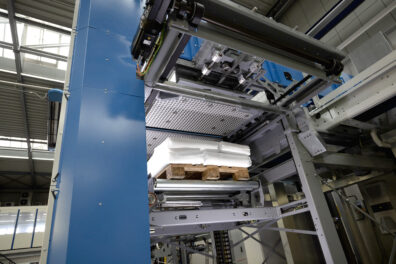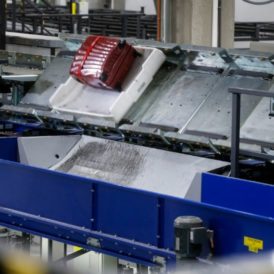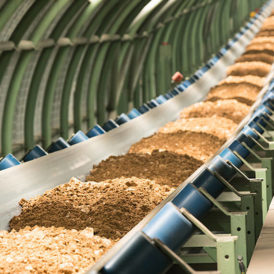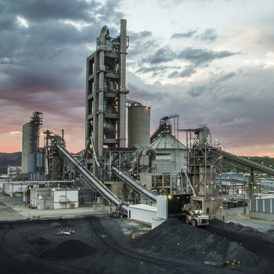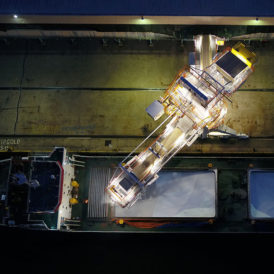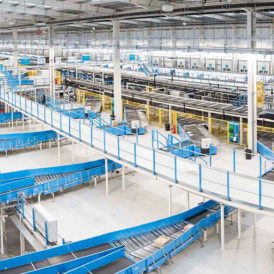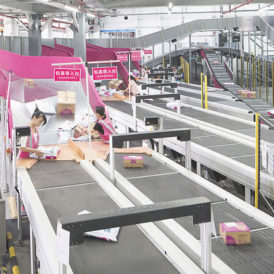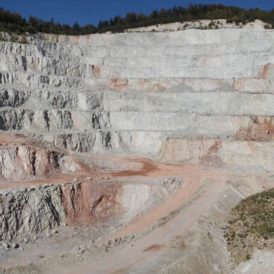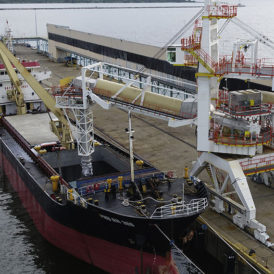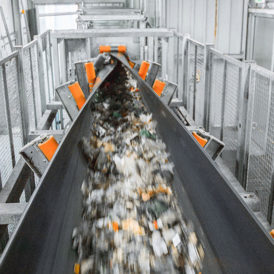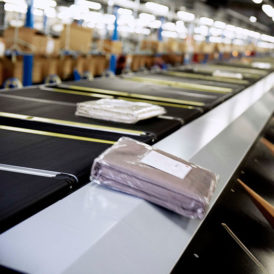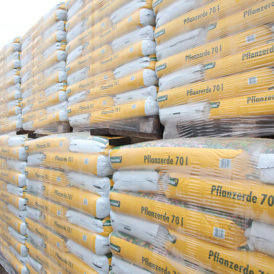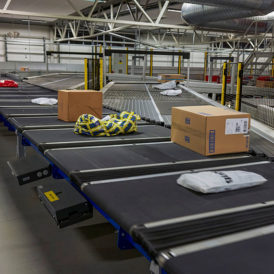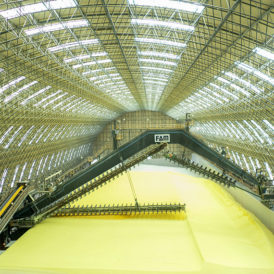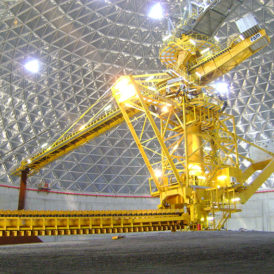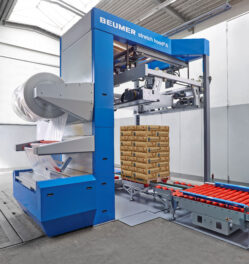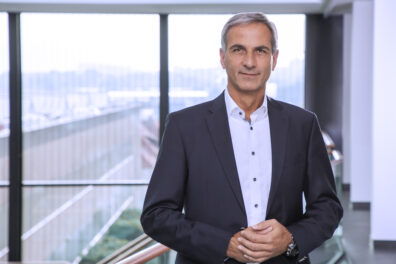The BEUMER Group supplies packaging solutions for the widest possible range of potting soils:
The market for potting soils such as peat, humus and alternative plant substrates is growing. The BEUMER Group supplies tailor-made packaging solutions based on standardized machine concepts to pack these materials safely and ready for transport, although they are often very different in their consistency. The customer receives robust, durable and highly available systems for stable and palletized product stacks.
“The corona pandemic has certainly fueled the demand for potting soil, peat, humus and alternative plant substrates considerably,” says Jörg Spiekermann, Head of the Consumer Goods Sales Division at the BEUMER Group. “During the pandemic, people couldn’t travel anymore, so they took more care of their gardens and patios.” This trend is still continuing.
However, the customers also include large retail chains, horticultural markets and owners of large garden areas who cultivate various types of vegetables in the professional and hobby sectors. The producers of potting soils come mainly from Europe, where the largest peat deposits are located. The BEUMER Group supplies these producers with complete packaging lines, including high-performance palletizing and packaging machines. For bagging and processing such as dosing, sieving and even chopping, the system provider works with partner companies, and assistance is also provided in selecting partners for consumables. Customers receive everything from a single source.
Fully prepared for peak periods
“It’s the seasonal business that makes this industry special,” says Spiekermann. This means that the machines have to run non-stop for several months, often in multi-shift operation, to successfully transfer the usually enormous order quantities of different soil materials. “The machines must always be highly available and powerful – with no downtime in this limited time frame.”
Yet another challenge is the different compositions of the soils, because peat, for example, behaves in a different way than humus, bark mulch and alternative plant substrates. This affects the filling speed – and the stability of both the bags and the palletized stack.
From moist to coarse-grained
Peat, for example, is a form of humus and it is still the raw material for many potting soils. It forms in bogs, due to the lack of oxygen under water and the acidic pH value from dead moor plants. Peat is composed of incompletely decomposed and preserved plant remains, especially those of peat mosses. These remains are saturated with water, because moors store a lot of rainwater or are fed from groundwater. “Moist peat is particularly easy to bag,” says Volker Feldmeyer, Business Development Manager at the BEUMER Group. However, the situation is different for peat-free or peat-reduced soils, which are being used more often nowadays, because the plant materials deposited in peat consist largely of carbon compounds. Peat is therefore an important CO2 reservoir, removing carbon dioxide from the atmosphere that plants once absorbed from the air. This gas is released again during use, fueling the greenhouse effect. It’s also a fact that peat is becoming scarce. Global reserves will probably only be able to meet demand for a few more decades. Regional mining restrictions are also in place. This is why substrates of wood fibers, compost, green waste, straw, perlite, lava, sawdust, various coconut fibers and bark humus are being increasingly used. This market is growing. In addition to peat producers, more and more plants are being built in Germany that predominantly process these alternative municipal substrates. “The materials are much coarser, and the water runs through,” says Feldmeyer. “And the coarser the earth, the more voluminous it is. That’s why alternative plant substrates are much harder to bag and palletize.” This is particularly the case with coarse bark mulch.
“We supply our customers with standard systems, which we adapt to the respective product,” reports packaging expert Spiekermann. These systems shake the bags less or more during the filling process to achieve optimum distribution during bagging. The height of the bag flattening belts and the pressure force must also be adjusted in the downstream palletizing system in order to force the residual air out of the bags. Now perfectly adapted, the bags and finished product stacks come out of the machine dimensionally stable. “The palletized stacks can be up to 2.40 meters high. The stacking pattern has to be just right,” says Spiekermann. “This is relatively easy with potting soil. The sacks are as solid as bricks afterwards. But it’s much more difficult with the coarse-fibered bark mulch.” If the pressing height is not set correctly, the bags could straighten up again after the bag smoothing process, negatively affecting the stack pattern.
Palletizing and packaging in the best possible quality
The BEUMER Group offers various palletizing solutions, such as the BEUMER paletpac. The system provider equips the paletpac with either a clamping or double-belt turning device to match product requirements. The device quickly brings the bags into the required position and keeps them dimensionally stable. The palletizer series is not only robust, it’s also designed for a long service life. The BEUMER Group has completely redesigned it: With the new modular design, the same or similar components and modules are now used in all systems, and where possible, the system provider has implemented a design that is as identical as possible. There are also fewer components. This reduces the number of spare parts and speeds up their delivery times, which has a significant impact on availability. BEUMER assembles the modules individually to match the customer’s requirements, tests them in-house and assembles them at the customer’s premises. This not only saves time and money, but also simplifies any subsequent modifications and increases in performance.
The containers, precisely stacked on pallets, can then be conveyed to the downstream packaging system – the BEUMER stretch hood. BEUMER also manufactures the hood in a modular design, so it offers the same advantages as the BEUMER paletpac. The BEUMER stretch hood covers the palletized goods with a stretch hood film that adapts itself to each stack. It is very stretchable and fixes the material on the pallet by means of horizontal and vertical contracting forces. This process thus offers a significantly higher load stability. The goods are also safely protected against environmental influences such as sun, dirt and moisture, both during handling and external storage. Operators can transport products to their customers in perfect condition, ready for presentation at the point of sale.
“More and more customers are coming to us and demanding stretch hood film with the highest possible recycled content of up to 30 percent in order to conserve resources. In the case of sack film, up to 80% recycled material content is already possible,” says Feldmeyer. “These films can also be processed reliably with our stretch hood series.”
High availability
“Our robust machines are usually in operation for 25 years and sometimes for more than 30 years,” says Spiekermann. The experts continuously optimize the machines – for example, their energy efficiency. Another important aspect is comprehensive customer support. It ensures the constant availability of the packaging lines. The support includes, among other services, a 24/7 hotline, a rapid supply of spare parts and branches all over the world, enabling fast support for customers everywhere. BEUMER Smart Glasses, a future-oriented product developed by BEUMER that supports users quickly and easily, is yet another jewel in the Group’s customer support crown: BEUMER customer support technicians can look over the shoulder of the customer’s service technician and solve the problem together with him. This digital solution reduces time-consuming journeys and high additional costs.
Spiekermann: “After the season, our service department takes a close look at the customer’s machine. Our experts check whether repairs are necessary and make them fully operational for the following season.” However, there’s also a trend that’s starting to emerge: more and more operators and contract baggers are turning to wood pellets or similar products in the off-season. These can be handled in a similar way to potting soil. “This enables them to run our packaging lines all year round,” explains the BEUMER expert.
